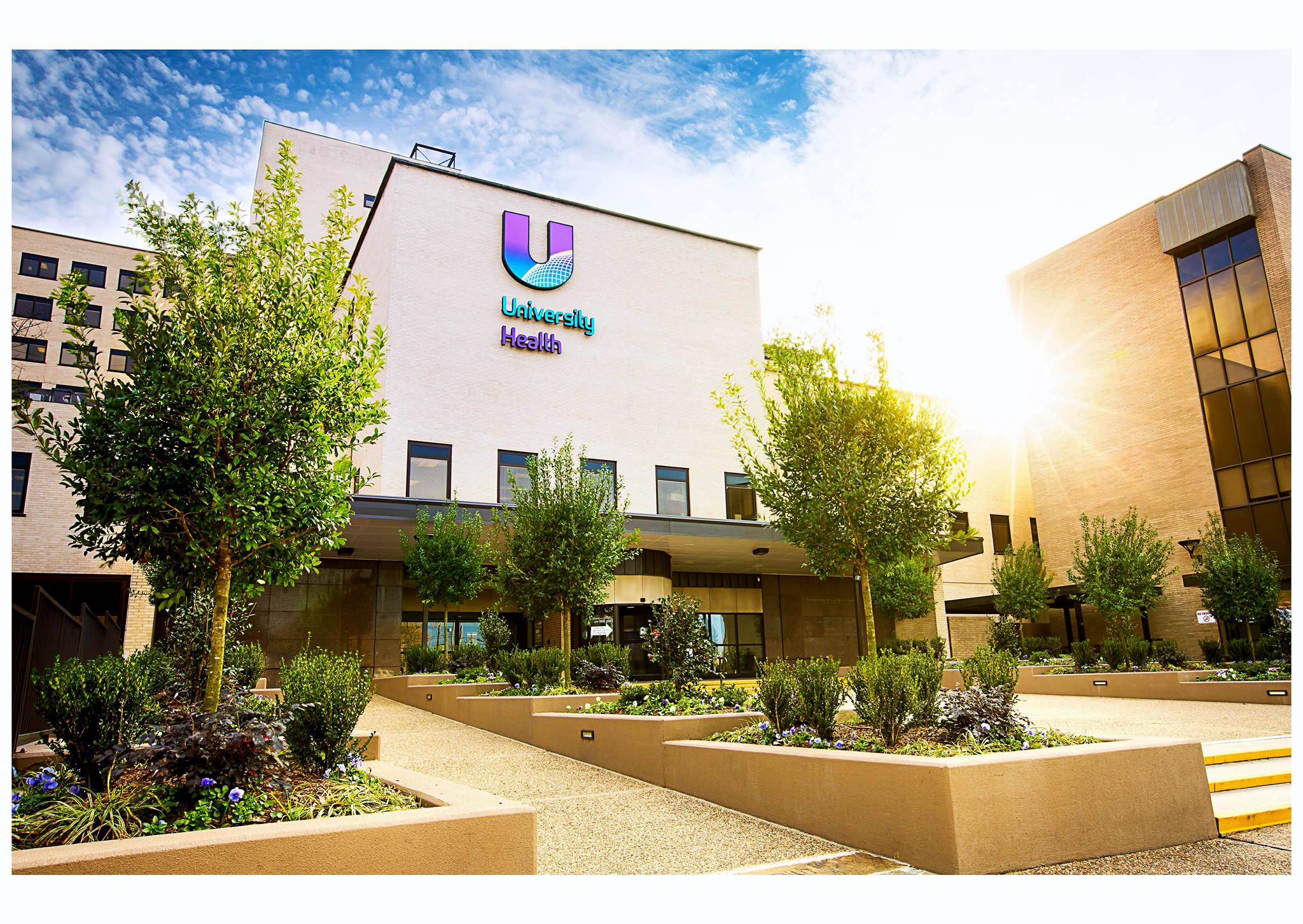On Oct. 28, Sen. Greg Tarver made a number of comments at the Joint Legislative Committee on the Budget in Baton Rouge about University Health that are inaccurate. Below are some of the statements Tarver made, and our response to his comments. These comments were shared at a University Health Employee Management Council Update on Thursday, Nov. 3.
Tarver claims: Minorities get second class treatment in Shreveport at University Health.
Our response: Since BRF took control of the old charity hospital system from LSU in October of 2013, the hospital has seen more patients, dramatically reduced wait times for patients to get care, and improved levels of service. Statistically, the majority of University Health’s patients at the Shreveport campus are African-American and classified as indigent. Patient satisfaction with University Health is at an all-time high and continuing to improve according to independent patient satisfaction surveys. There is no way this record of serving the community can be categorized as second class treatment.
Tarver claims: University Health built Provenance Clinic in an area of million dollar homes and they are stopping people from coming there from other parts of the city. The people they are turning away from that building are black.
Our response: In fact, LSU opened its primary care faculty clinic in the Provenance neighborhood before privatization. After transition, University Health expanded services by opening an urgent care center next to the primary care clinic. We maintain a zero tolerance policy for any discriminatory practices at all University Health facilities, as do the physicians at LSU who staff University Health clinics. Patients might be directed from the Provenance location to the medical center on Kings Highway if they require a higher level of service or physician specialists that are not available at the Provenance location.
Tarver claims: University Health violated the Memorandum of Understanding (MOU) agreement because they owe the LSU School of Medicine for the July payment and they have not paid in full.
Our response: As of November 1, the state owes University Health for services the hospital has already provided to patients, that are generally paid by October 15 of each year. While delays in state payments to University Health are now approaching four months, we expect full payment next week. There have been some minor delays – a day or two – in payments to the LSU School of Medicine during this period. But during this period, University Health has still paid the LSU School of Medicine more than $42 million. All payments from University Health to the LSU School of Medicine are current or in escrow, with the exception of disputed charges in the process of being resolved. In spite of these cash flow issues, University Health’s financial performance has continued to grow stronger and be recognized by independent third party financial evaluators through approval of bank credit lines and favorable positioning to enter the capital bond market.
Tarver claims: University Health is not paying its bills. They owe $1.8 million to the prescription drug provider. They owe $500,000 to the elevator maintenance company. They owe $180,000 to the trash collection service.
Our response: All hospitals have balances due to vendors as part of the normal course of business. The accounts referenced by Sen. Tarver are not overdue and the amounts are grossly overstated. The traditional lag in state funding from July to October is nothing new and existed long before hospital privatization as anyone at LSU who was here before transition could confirm. Most of our vendors are accustomed to this and as a result of delayed payments by the state, University Health has worked collaboratively with willing vendors to extend credit terms in recognition to accommodate the delay in state funding. Our policy on payments to clinical vendors is to address those immediately to ensure continuity of patient care.
Tarver claims: People are still waiting seven or eight hours for service at University Health Shreveport.
Our response: Before hospital privatization, some patients experienced extremely long delays in waiting to be seen in hospital clinics. Since the hospital was privatized in 2013, wait times to get appointments in clinics and to be seen once someone arrives at a clinic have been dramatically reduced. Currently, the median wait time for a patient from check in to check out (or how long it takes for the entire clinic visit) is 86 minutes.
Tarver claims: When you have 10 elevators and only three of the elevators work, and you owe the elevator maintenance people $500,000, that means people have to take the stairs.
Our response: There are 53 elevators on the Shreveport campus. That includes University Health hospital, the LSU School of Medicine and the Ambulatory Care Center (ACC). One elevator is currently down in the hospital and one is currently down in the School of Medicine. At any given time, elevators could be down for routine services. The current balance is less than $25,000 and UH is current. Patients are not required to use stairs to access care.
Tarver claims: An example of University Health not providing good healthcare to the community is a report from a constituent that said during an examination a nurse had to go somewhere to find supplies for the examination, then came back 15-20 minutes later with the supplies.
Our response: UH has every supply necessary to treat patients and is unaware of any vendor that is not shipping supplies. Since not every supply that is required to treat a patient can physically be stored in the exam room, every clinic maintains a fully stocked supply room to provide timely access and secure storage of medical supplies. Depending on the unique patient diagnoses and physician treatment plan, a particular device or instrument may have been stored in a separate location. A typical example is durable medical equipment such as crutches, walkers, ankle boots, etc., which are all stored in a separate central storage area to facilitate ease of access for the entire campus. While the Senator did not provide the particular details of the patient needs and required supplies, he did confirm that the UH clinicians had the requisite supplies available and provided the appropriate patient care.
Tarver claims: BRF owns Future State LLC, a company which is doing business with the hospital. Sen. Tarver said that is a technical and ethical violation that may be costing the state more than the market value for service.
Our response: Future State, LLC is a wholly owned subsidiary of the BRF, which is a not for profit, exactly like University Health. University Health entered into a contract with Future State, LLC in July to provide IT services, including hosting, software and management services. As part of that contract, Future State assumed the cost of the IT existing staff; the cost of running the Epic system; and payment obligations for Epic. These expenses are passed back to the hospital at cost, as required by law.
Future State was set up to allow us to use our expertise to assist smaller hospitals in the region who cannot afford the cost of high end IT services, which in turn will drive down costs to the hospital and the state. In a recent US News and World Report, nine of the top 10 hospitals in the US (Mayo Clinic, Cleveland Clinic, Massachusetts General, John Hopkins, etc.) use the Epic System. Future State’s plan to extend the technology to the region is modeled after these medical centers.
The allegation that a hospital could be prohibited from purchasing services from an entity under common ownership is false. Most hospitals have business transactions with related parties. It is such a common practice, that there is even a separate worksheet for related party transactions on every hospital’s cost report. Basically, any amounts billed by Future State LLC are adjusted to cost and that adjustment is subject to review by both federal Centers for Medicare and Medicaid Services and the State’s audit contractor. As Future State expands its services to other hospitals, it will employ more people in the region, and further drive down the cost of healthcare at University Health.
Tarver claims: University Health does not have a permanent administrator of the hospital and is too dependent on consultants at the top of the organization.
Our response: As hospital operations moved from the transition of being a former state-run charity hospital to a private partnership, the University Health Board of Directors did not believe transitional circumstances were conducive to recruiting a permanent hospital system CEO. The Shreveport campus did hire a permanent President for its campus, Rod Williams, a resident of Shreveport. At its most recent meeting, the board of directors authorized a formal search for a permanent system CEO and that search is under way.
Tarver claims: The hospital spends $2 million a year on advertising, which is taking away from the safety net hospital operations.
Our response: The total marketing expenses for the just concluded fiscal year are $765,000, which is 0.15 percent of the hospital’s total operating budget. The expenses include traditional advertising (newspaper, TV, radio); website support and maintenance; social media support; physician and employee recruitment ads; patient handbooks and support materials such as discharge folders; internal communications support materials like handwashing hygiene posters; community sponsorship support, and other such items.
A significant part of the hospital’s advertising was spent on promoting LSU physician’s and hospital services, something the LSU-run hospital could not do prior to privatization. In addition, our advertising is aimed at growing the hospital’s commercially insured patient base, which helps offset continuing cuts in funding from the state for taking care of indigent patients. Growing the commercially insured base of patients is critical to the long-term viability of the safety net hospital. Serving more commercially insured patients improves competition in the market, helps drive down overall healthcare costs, and reduces the cost burden of the state in supporting indigent care. Marketing is essential to attract commercially insured patients.


